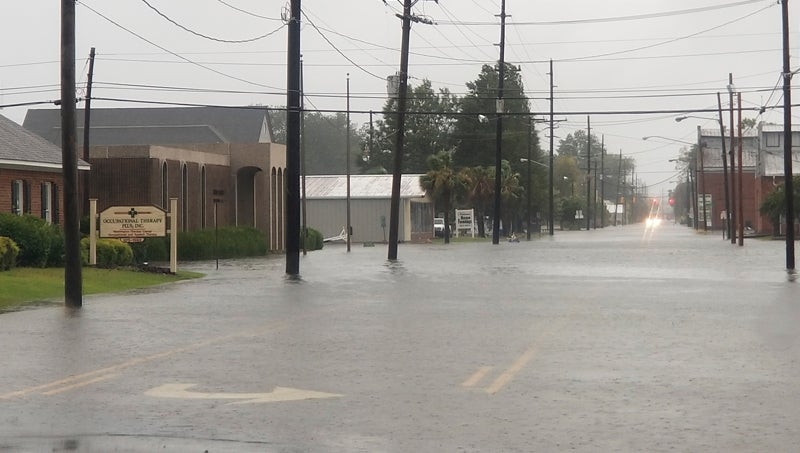A disaster of a different kind of storm
Published 11:31 pm Wednesday, September 11, 2019
Last week, as Hurricane Dorian approached, the National Weather Service held a series of webinars twice a day, each day of the week, to keep emergency responders, local government officials and the media informed. These webinars were localized to eastern North Carolina, illustrating and explaining potential impacts, probabilities, with each successive forecast growing more and more accurate as the storm approached.
Each morning, the online press conference was led by National Weather Service, Newport/Morehead City’s warning coordinator Erik Heden; the evening webinar was led by Meteorologist-in-Charge David Glenn. Both offered the opportunity to ask questions at the end of each webinar, allowing those listening in to get specific information about, say, predicted wind gust highs in eastern Beaufort County or where storm surge could be seen the most in the Pamlico River.
This allowed the Washington Daily News to keep posting the most accurate information about potential impacts of Dorian online, on social media and in print.
It’s also a very deliberate machination by the National Weather Service. About eight years ago, the agency added a new priority to its services after meteorologists saved countless lives by accurately predicting where and when a deadly tornado would happen. The priority is communication: with first responders, with local government and with media to provide the most accurate information — information that allows those in the path of severe weather time to prepare, evacuate or take shelter. These days, NWS’s top priority is shared between the correct data and getting the data out there to the public, potentially saving lives in the process. It also means dispelling any rumors that are not accurate.
Last week, the National Weather Service’s office in Birmingham, Alabama, did just that. They dispelled a rumor that the state would be hit harder than expected by Hurricane Dorian. Alabama was not in the path of Hurricane Dorian. Meteorologists at the Birmingham office, in clear, concise language, released a message that Alabama was not going to be impacted by the hurricane. Dorian’s path would stay far to the east.
Why did NWS-Birmingham do this? Well, they weren’t playing politics and fact checking the president. What they were doing was their jobs: to provide accurate information. To dispel rumors and to calm the panic of Alabama residents who’d just been told they were in the path of very dangerous hurricane.
Without pointing fingers and naming names, NWS-Birmingham did the right thing. But somehow their effort to get the correct information to the public has become political, prompting the president to address the issue in front of reporters and the parent agency of NWS, the National Oceanic and Atmospheric Agency, to rebuke NWS-Birmingham for contradicting the inaccurate information shared. The rebuke came in the form of an unsigned letter from NOAA, of which the acting head of NOAA had no knowledge.
Weather is many things, both delightful and dangerous. What weather is not, is political. It does not matter whether a person votes left, right or center; in the path of severe weather, every person needs to be prepared.
Just as Ocracoke residents hope Hurricane Dorian hasn’t set a precedent for hurricanes to come; let’s all hope the inaccuracy-correction-rebuke-investigation-political storm associated with it won’t set another.
Politics in weather spells disaster.





